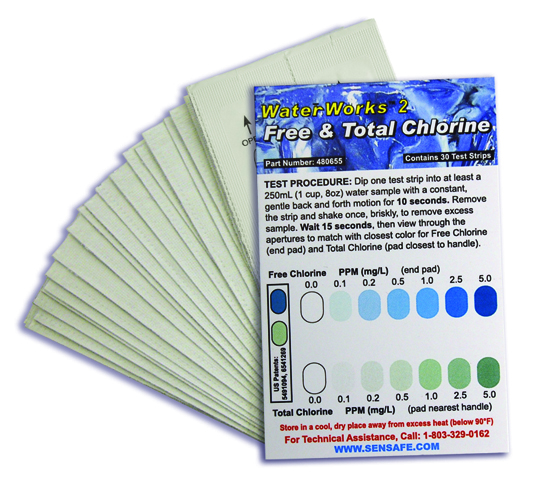We recently received an inquiry from 'Michelle' who asked, "What kit should I purchase if I want my water tested for Trihalomethanes. We just installed a RO filtration system for our kitchen sink and refrigerator and would like to know that it's filtering the Trihalomethanes out. Thank you. "
To our knowledge, Michelle, in the retail world filters using activate carbon have the ability to effectively reduce levels of trihalomethanes in water. Many RO systems come with activated carbon pre- or post-filters as an add-on or option so if your filter has one such filter as an option, then yes, your reverse osmosis system which includes some sort of activate carbon filter should work for trihalomethane reduction.
As far as test kits go, you will need to have your water tested by a laboratory since no at-home DIY water test kits for trihalomethanes exists. You can choose to use a local laboratory or a mail-in service like National Testing Laboratories.
Removal vs. reduction?
You may have noticed that we spoke of REDUCING trihalomethane levels rather than eliminating them altogether. We did so because in the world of water processing and filtration, although many filtration methods do an excellent job of taking unwanted contaminants out of water, current analytical tools only allow us to measure down to certain concentrations... and so the possibility exits that lower levels of the contaminants MAY still exist in treated/filtered water.
Does all public water contain trihalomethanes?
If your public water system uses 'free chlorine' as its primary disinfectant, then yes, your water system distributes drinking water that contains trihalomethanes. Keep in mind, though, that the EPA has set what it considers safe limits for the amount of trihalomethanes that public water treatment facilities may distribute so in all likelihood your water does not contain levels of trihalomethanes currently deemed as harmful to humans.
Water distributed by water treatment facilities that use chloramines as the primary disinfectant does not typically contain harmful levels of trihalomethanes. You should know, though, that at least one a year most chloramine systems do flush their lines with water containing free chlorine as part of a cleansing protocol to get rid of any accumulated 'line slime' that chloraminated water did not keep at bay.
Free chlorine vs. total chlorine? Which do I have?
To determine what primary disinfectant your water supplier uses, you can usually pick up the phone and ask them or you can use a basic water test like the WaterWorks 2 Free & Total Chlorine test strip to find out for yourself. The WaterWorks 2 product detects free chlorine levels and total chlorine levels at the same time and if you subtract the free chlorine level from the total chlorine level... In most cases if the total chlorine test pad give a reading, and the free chlorine test pad does not, then your water system more than likely uses chloramination to keep the water safe.
Looking for reverse osmosis water filters?
Remember: Reverse osmosis on its own cannot effectively reduce potentially harmful levels of trihalomethanes so if your water quality goals include reducing trihalomethane levels in your water, we suggest you consider water filtration systems featuring pre and/or post-filters that contain Granular Activated Carbon (often abbreviated as GAC). You can find a number of different filter brands and types on the following sites: FilterWater.Com, FiltersFast.Com and Filter-Drinking-Water.Com.
